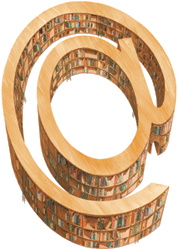MICHAEL
European projects MICHAEL and MICHAELPlus (2004-2008), funded by the European Commission as part of the eTEN programme, have created a network of national databases that provide access to cultural heritage, through the description of digital resources of cultural and scientific interest developed over the years by public and private cultural organizations, from any administrative background, in the project partner countries.
The main goal of the MICHAEL (Multilingual Inventory of Cultural Heritage in Europe) project was to make available to a worldwide audience the wealth and diversity of Europe cultural heritage, by providing online access to the digital collections of museums, archives, libraries and other cultural and scientific institutions throughout Europe.
National contents are available through the MICHAEL Culture European portal, online at: http://www.michael-culture.org/
MICHAEL targets a very broad and varied audience: students and teachers, professors and researchers, amateurs and anyone with a general interest in the topic, professionals in the cultural heritage sectors and creative businesses in search of digital cultural content; all of them will be able to find collections of interest.
The project aims to allow users to easily find, in several languages, information on European digital resources of cultural interest, and to assess their relevance to their own research purposes through context indications related to the institutions that produce and manage them, on the projects within whose framework these resources and services are produced, and on the physical collections that were digitized over the course of these projects. Once the digital resources of interest have been identified, the user is steered towards the online service or offline products that provides access to them.
MICHAEL fostered the achievement of a European methodology for the creation and distributed access to repositories of digital cultural contents based on international standards, supporting an ever-increasing array of activities and initiatives at local, national, and international levels.
The system cornerstone is its data model, which reflects the main international standards in its sector, and in particular Dublin Core, with whose application profile for the description of the collection level the data model is essentially in line. Indeed, the DC Collections AP develops the RSLP Collection Description U.K. standard, the main template available during the period when the MICHAEL technical group worked on the data model (2004-2005). For further information see: MICHAEL DATA MODEL.
The system cornerstone is its data model, which reflects the main international standards in its sector, and in particular Dublin Core, with whose application profile for the description of the collection level the data model is essentially in line. Indeed, the DC Collections AP develops the RSLP Collection Description U.K. standard, the main template available during the period when the MICHAEL technical group worked on the data model (2004-2005). For further information see: MICHAEL DATA MODEL.
A not-for-profit international association named MICHAEL Culture has been established with the purpose of maintaining and developing the MICHAEL network and services beyond the end of the European funding.
Both in Italy and in other partner countries, MICHAEL has proved to be a simple and efficient tool able to achieve the goals set for itself. In Italy, MICHAEL fostered the launch of the systematic cataloguing of digital and digitized collections from cultural institutions of any sector, size, or administrative competence existing in the country. MICHAEL Italia contributes to CulturaItalia, which is also able to identify contents of potential interest.
For further information: ic-cu@beniculturali.it
